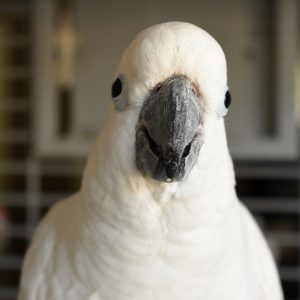Science is a forward-moving momentous force that helps us to discover better things about the universe that surrounds us. Although we ourselves are encapsulated within the sphere of the planet Earth, the minute discoveries that we build upon allow us to gradually understand our amazing core of existence in a brighter light. It’s why the academic world of science continually launches studies of various things. Those studies will one day open amazing doors that will enrich all life in every way. With birds, it is our rabid interest in how they seem to surpass intelligence tests that keeps science looking harder at their seemingly casual existence.
A recent study undertaken by the Max Planck-Gesellschaft Institute to determine the brain size of parrots and their relationship to life expectancy has turned over a few stones of insight. The study was published in March of 2022 and involved 133, 818 individual birds across an astounding 244 parrot species. The study of longevity in parrots has been negligible up to this point. It has been studied and known among other species of creatures that brain size contributes to longevity in species. Now, with this new study, we’re steps closer to understanding brain size and longevity in parrots.
The Link Between Brain Size & Longevity
The approach to this study depended heavily on two previously formed hypotheses that involve the evolution of birds and their lifespans. One was the “cognitive buffer hypothesis” that agrees that cognitive abilities will contribute to longevity. The other is “expensive brain hypothesis,” a thought that the lifespan of a bird is largely attributed to greater development of offspring with large brains (or that show stronger intelligence). During the study, it was determined that it is true that large brains in birds do, in fact, lend to their longevity. With favoritism toward enhanced intelligent features of the offspring, this naturally selected for longer life.
With larger brains, the developing birds have been able to effectively think out solutions leading to safer conditions that help to prolong life. The understanding is that large brains in living things allow them the ability to proactively think and to effectively rationalize the world around us. This study helped to underscore the concept of survival among us. With birds, such brains likely help them to learn better techniques of eating, food gathering, trust, and other things that lead to a longer life. This certainly explains the many articles written about the ingenuity of large birds to solve complex problems in steps to help them better adapt to a changing world that they find themselves in.
This study is a complex investment of time into the various birds that were used to gather data. Of course, the science of the study is far too complex for a write-up such as this. If you have further interest for the nuts and bolts of the study, follow this link.
In time, science will be able to tally up all the scores among all studies on life expectancy, coupled with the “hows and whys” gleaned from those studies, and may be able to effectively enhance all life on the planet. It’s why we continue to study every pathway with all the myriad of turns: to give us valuable insight for improvement.
